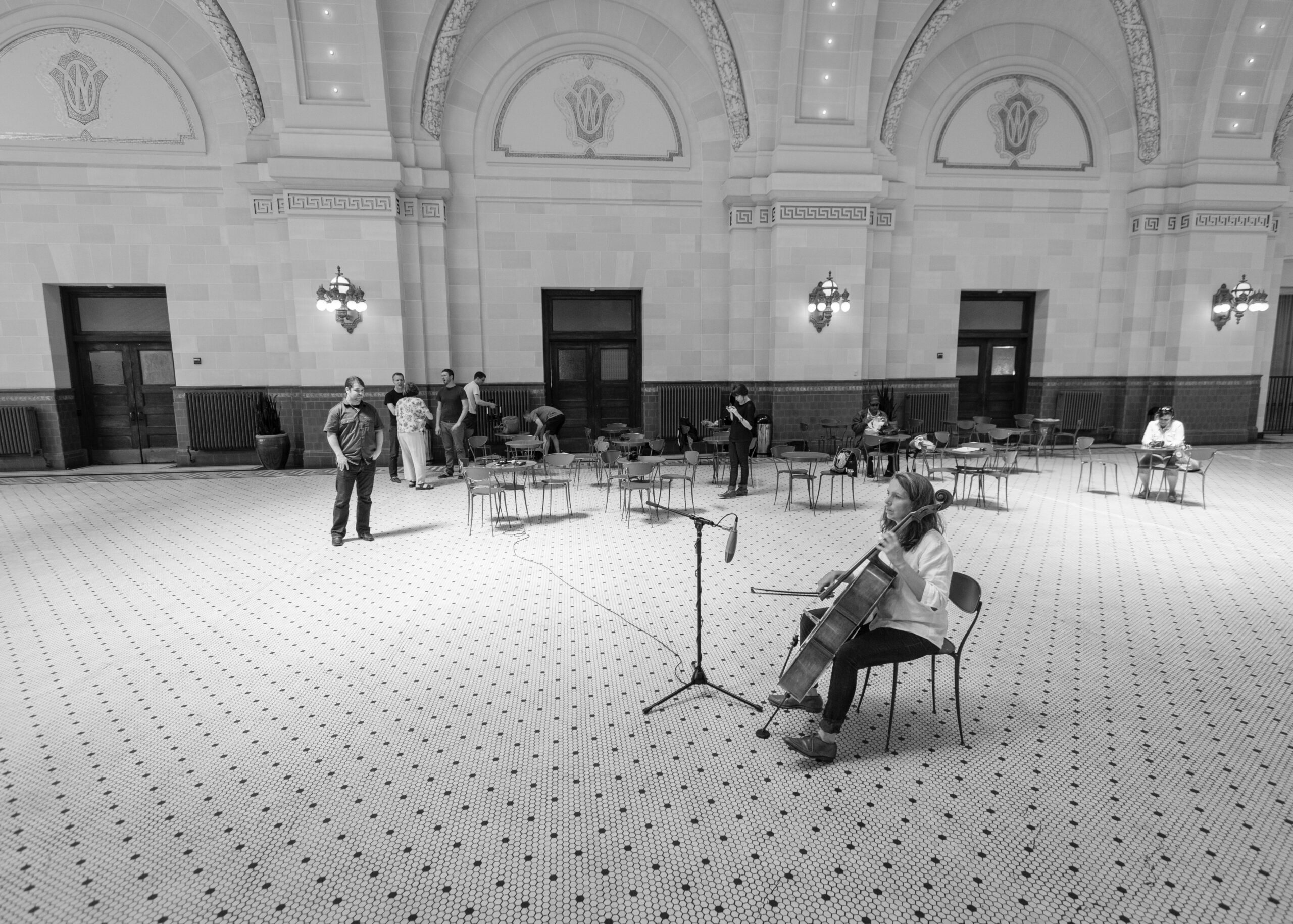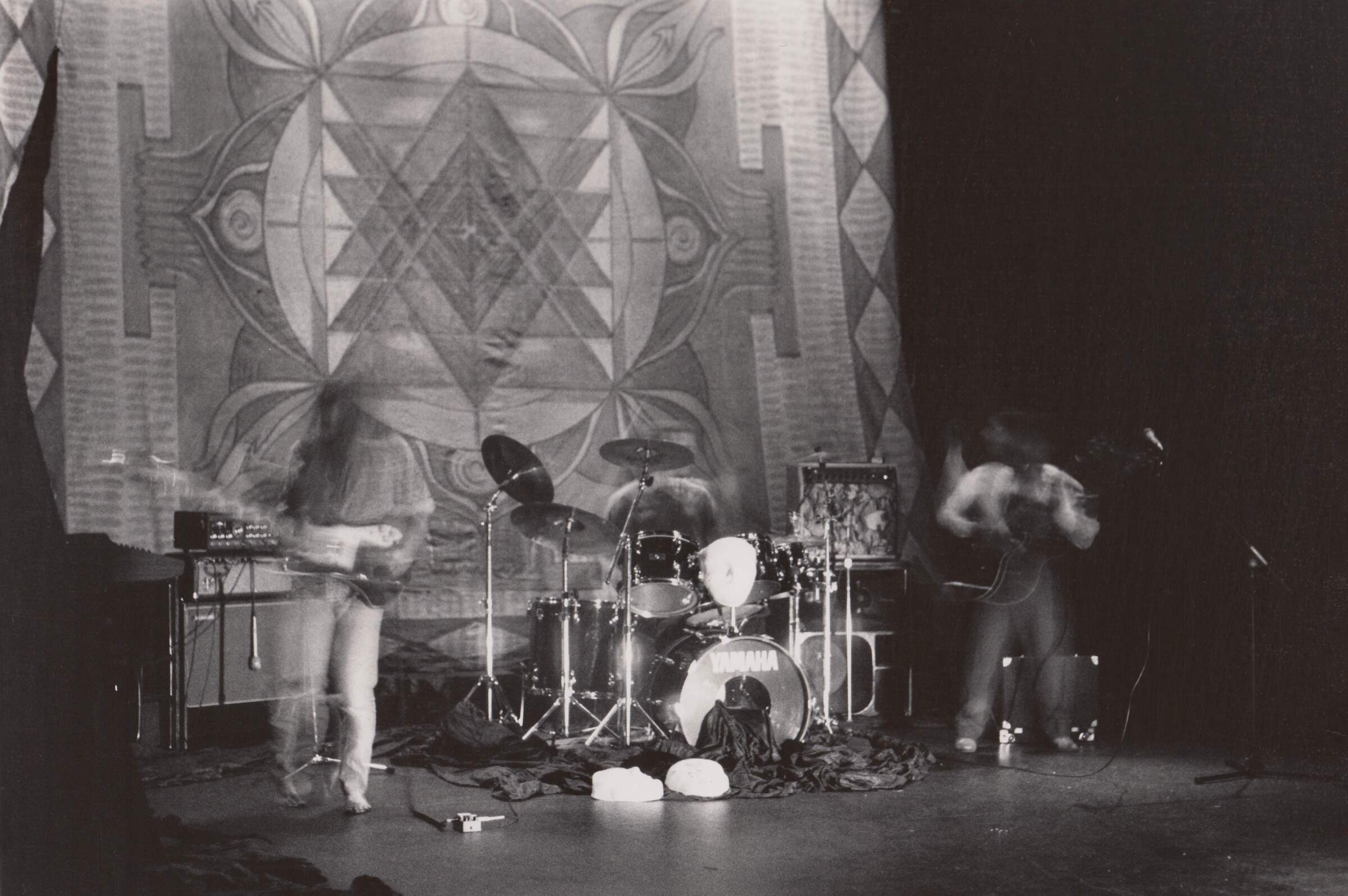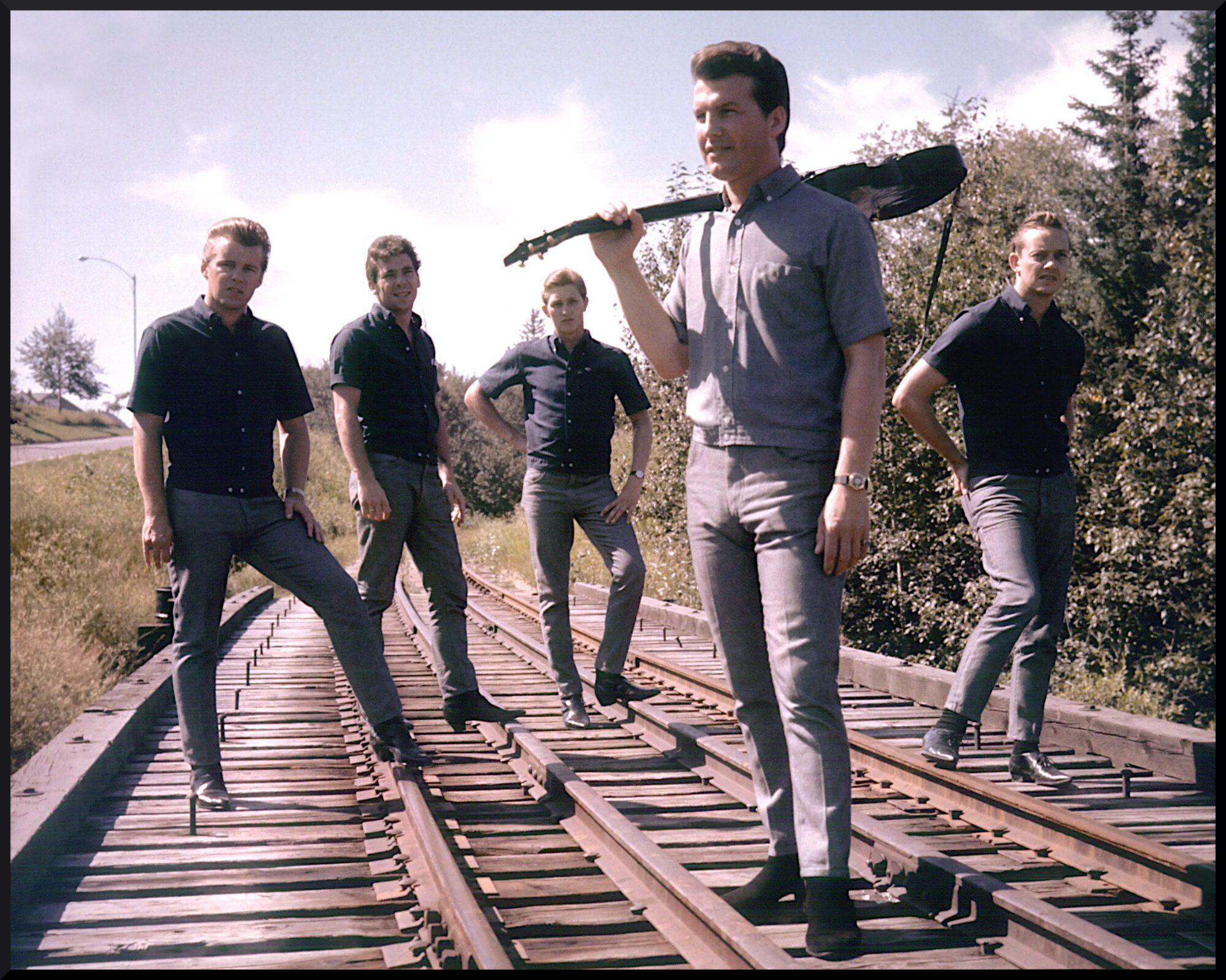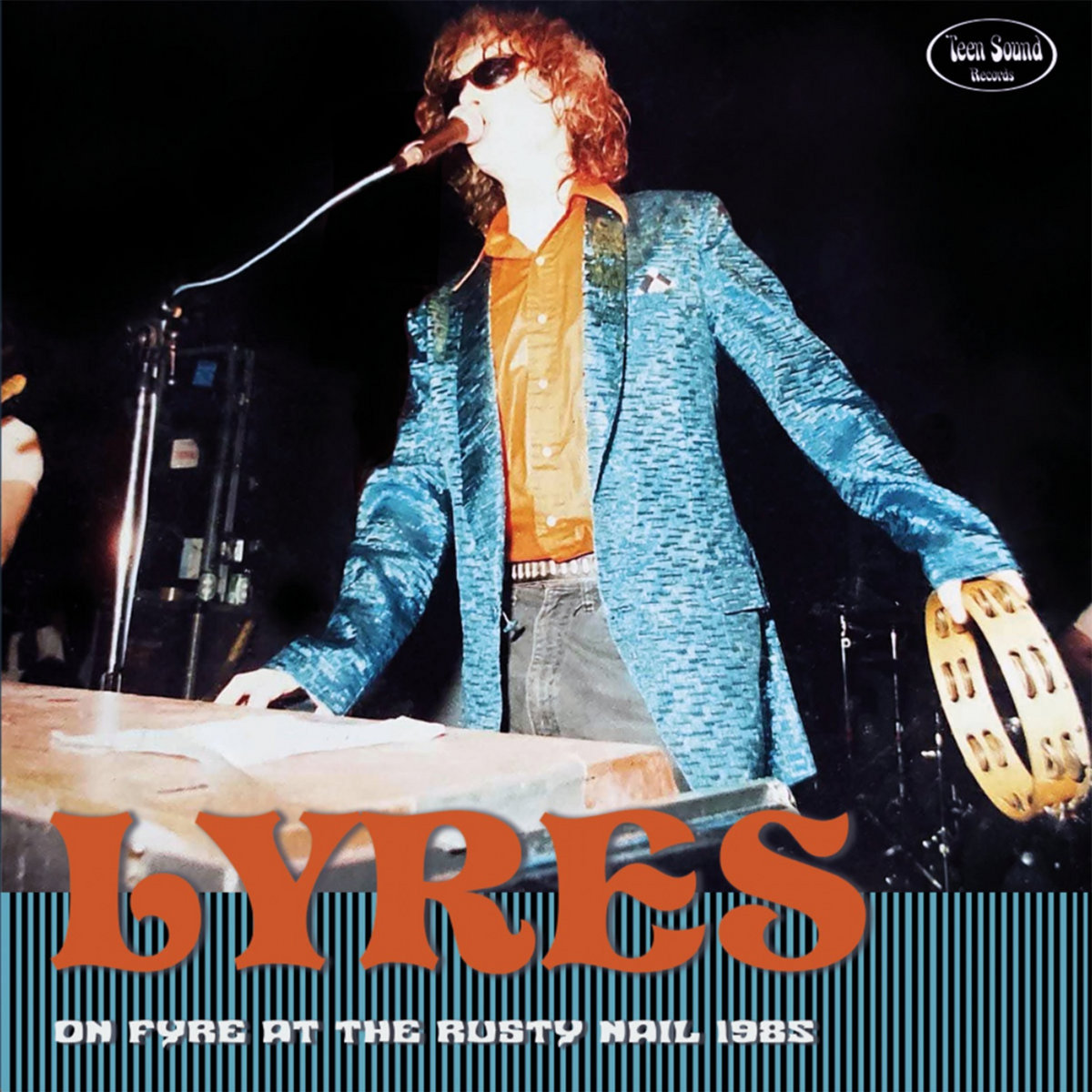Lori Goldston interview
I’ve been into Lori Goldston basically since I can remember getting into music. Her cello is one of the major factors that helped propel Nirvana’s Unplugged In New York to its place among the greatest albums of the last thirty years with out a doubt in my mind.
Until recently though, I didn’t know that Goldston also has an illustrious career of solo releases and has been a prolific studio player and guest working with literally too many bands to begin to list here! As she describes it, she’s a “classically trained” cellist who then “rigorously de-trained” herself, thereby allowing her to create some of the most interesting, hypnotic and arresting music I’ve ever heard. Goldston’s released two full-length albums and two 7-inch singles, her solo catalog contains material written and performed alone by herself on the cello such as the Creekside: Solo Cello LP for Mississippi Records, as well as material recorded with a drummer and other accompanying instruments like The Lichens In The Trees single. Ranging from absolutely haunting solo cello compositions that almost have me in tears at points sometimes, the sounds of unfettered sadness and melancholy translated through the wisdom of instinctual strings wielded by one of their greatest masters, to these almost playful ditties, recalling the innocence, naivety and exploration of adolescence; your first kiss and warm summer nights under the stars. But there are other songs, my favorite songs, which simply seem to conjure the majesty of beauty itself somehow. It’s hard to explain. Maybe it’s their simplicity, or maybe it’s the unseen complexities of their composition, but if you put on a set of headphones and envelop yourself in the music you can hear the sunrise. You can hear the sounds of the sweet morning dew that gathers on the rusty tin roof above the porch, the soft patter of rain in an empty field. You can almost hear what a rainbow might sound like. But before I totally start sounding like that creepy kid from American Beauty though, as I mentioned, her music really runs the gambit and there’s some seriously rockin’ stuff as well, The Lichens In The Trees being a perfect example of almost neo-classical music teamed with an incredible improvisational psychedelic rock edge to it. The electrified cello, drums and bass meld into some of the sweetest experimental improvised music I’ve heard in a long time and I listen to a lot of it! I don’t mean to prattle on, or be exceedingly verbose, it’s just that doing Lori Goldston’s music any kind of justice requires a little bit of explanation. She’s been so many places, been involved in so many things, and accomplished so much in so little time that it’s difficult, actually likely impossible, to sum or her music up let alone how amazing of a person she is. Thankfully between tours, and rigorous recording and performance schedules Lori talked with me in-depth about her extensive musical career from top to bottom, as well as her background in music and her childhood. I’m absolutely beyond honored to be able to share with you the story of one of the coolest and most talented musicians you’ll ever have the pleasure of hearing. You’ve heard her music before, now learn about the person behind the sounds…
How old are you and where are you originally from?
I grew up in the suburbs outside of New York City, on Long Island, and just turned fifty one.
What was your home like musically when you were growing up? Was there a lot of music or anything around when you were a child? Were either of your parents or any of your close relatives either musicians or extremely interested or involved in music?
In my immediate family there was very little interest in music. Once in a great while someone would play a record maybe, but that was it. Both grandmothers were interested in music, and on my father’s side there was a very sweet tradition of everyone singing old songs together at holiday gatherings.
And what was the local music scene like where you grew up? Did you get very involved in the local scene there? Did you see a lot of shows or do you feel like that scene influenced you very much? Did it play a large role in shaping your musical interests or forming the way that you approach performance at this point?
Growing up my music life was formal: lessons, school orchestra, etc. Luckily for me, the school district had a great music program, and there were other students who were serious musicians. I got a good music education in high school and managed to play all the time. Outside of school-related stuff, there wasn’t really a scene there in the suburbs. Hardly anyone formed rock bands, in part, I’m sure, because there was nowhere to perform. This is in very sharp contrast to my friends who grew up here in Seattle and had stories about going to shows when they were teenagers. There’s a long tradition of it here and I think it’s surely one of the reasons the music world here is so rich.
What would you consider your first real exposure to music to be?
When I was very small my grandmother visited from Manhattan on weekends. We’d watch a lot of live music on television and sometimes listen to the opera broadcast on the radio.
If you were to pick a moment, a moment that seemed to change things drastically for you and perhaps opened your eyes up to the infinite possibilities that music presents, what would it be?
That’s a tough question; so many! I’ve been working on organizing my life around experiencing as many of those moments as possible.
When did you decide to start writing and performing your own music? What brought that decision about for you, or was it just sort of a natural progression or extension of a deep needed seeded need to create something or of self-expression?
When I was a teenager, I was interested in composing and arranging, but had no context for it. Then I went to an arty, unconventional college, Bennington, which was built around a philosophy of learning by doing. So right from the start of music class, they have the students all play each other’s compositions. It was baffling at first, but as with many things you jump in and get your hands dirty and it’s no problem from then on.
What was your first instrument? When and how did you get that?
When I was seven I asked my parents about the guitar that my brother had taken lessons on a few years earlier. I was captivated and just kept playing it until my parents figured they’d better send me to music lessons. A few years later, I started taking cello lessons when that was offered in school.
You’ve been associated with some of the most landmark releases of my lifetime and worked with some of my favorite acts of all time, including but absolutely not limited to, Nirvana, Kimya Dawson, Black Cat Orchestra and Earth, the latter two of which you’re still pretty involved with if I understand correctly. Who are some of the other collaborations you’ve been involved with in the past that I’ve missed?
Thanks for the kind words! It’s a pleasure to hear that something that I’ve worked on has had that kind of impact; magical, really. The list of collaborators is long and crazily varied. For the past couple of years I’ve been playing a lot of solo shows, and various collaborations here and there. It’s an embarrassment of riches here in Seattle, with a crazy lot of good musicians who are also nice, smart, interesting people. We’re really lucky. So, I have several friends that I work with on and off, and it’s very easy to pick up wherever we left off. I’m not playing with Earth at the moment, but maybe sometime again in the future. I just finished a European tour and am catching my breath, looking forward to practicing, composing and spending time at the library to study nonconventional music scores. My old pal Mirah will come through town in a couple of weeks and I’ll sit in on her set here in Seattle. We’ve recorded and toured together quite a bit, but it’s been a couple years since we’ve played together, so that will be nice. I’m also looking forward to playing with Angelina Baldoz in a couple of weeks, another old friend and collaborator. Kimya I’ve known for a long time, but really I only played on, I think, one song on one of her albums, which I’ve done for many, many people and bands. I am blessed with so many wonderful collaborator friends past and present, in the U.S. and Europe: punk bands, improvisers, composers, music from lots of different countries, all kinds of rock, jazz, folk, you name it. I’ve had amazing luck and don’t usually back away from a challenge. Some of the people I’ve worked with closely and repeatedly are Jessika Kenney, Ed Pias, Jherek Bischoff, Elizabeth Falconer, Mirah, Larry Barrett, Tara Jane Oneil, Mike Gamble, Paul Hoskin, Ellen Fullman, Marco de Caravalho, Kane Mathis, Greg Campbell, Stuart Dempster, Heather Duby, Torben Ulrich, Jaison Scott, Dave Abramson, Mik Quantius, Thomas Hopf and Dan Sasaki.
“I’m a pretty harsh critic of my own work”
You always seem to have quite a bit of stuff up in the air that you’re working on at any given time and I know that you’re also a teacher and a parent. How do you find time to juggle so many things? You always appear to be pushing yourself, making new inlets into experimental or alternative forms of self-expression through your chose instrument of the cello and I was curious if the amount of stuff you work on is aimed at expanding and influencing what you’re creating, or just born from a deep seeded need to express yourself and create as much as you possibly can?
I’m a pretty harsh critic of my own work, so there’s always something that’s in dire need of improvement. Also, I think I was blessed, and maybe have cultivated, a good imagination, and there’s always something that I’m after that’s just beyond my reach. As far as time goes, I keep charging ahead and it seems to work out in spite of my inherent lack of organizational skills. A friend once told me that I was organized like an angry mob.
Is there any sort of creed, code, ideal or mantra that you live by as far as your music is concerned?
It’s supposed to be about freedom.
As I mentioned before, I know you were involved in founding the Black Cat Orchestra and have released two LPs with them in addition to collaborating on two albums with Earth and you’ve also released two solo albums and a 7-inch. What all are you involved in as far as active projects and collaborations go at this point?
The Black Cat Orchestra released four albums, a self-titled one, Mysteries Explained, Long Shadows at Noon, and a collaboration with Mirah, To All We Stretch The Open Arm. After that, we had a band that was kind of similar, Spectratone International, that released an album as well, also in collaboration with Mirah. At the moment, I’m playing sometimes with a drummer friend, Dan Sasaki, and occasionally with another drummer, Greg Campbell. That’s really the only steady-ish thing at the moment. I just got back from a pretty long tour that was on the heals of a busy spring and summer; I’m catching my breath and figuring out what to sink my teeth into next.
Can you tell us a little bit about the Black Cat Orchestra? Although I know you’re involved in working with a lot of people you were involved in forming the Black Cat Orchestra if I understand correctly. Who all is in that group? When and how did Black Cat Orchestra come about?
The Black Cat Orchestra came out of a band that my husband Kyle and I formed when we were working with a theater and dance company, sometime around 1991. The instrumentation was cello, accordion, bass, drums, guitar, voice, French horn, usually saxophone and sometimes harmonica. We played music from all over, whatever caught our fancy from records and sheet music we’d dig up at the library or second hand stores, or wherever. I never quite know how to describe that band. We were making music that was nostalgic for something that never existed.
Where are you located at these days? What’s the local music scene like where you’re at?
I’ve lived in Seattle since the mid 80s. As I mentioned earlier, the music scene is wonderful here. There are a lot of great musicians and the atmosphere is generally very friendly and supportive.
Do you book or attend a lot of local shows or anything where you’re at? Do you feel like you’re very involved in the local scene at this point?
Yes, I attend a lot of shows when I’m in town, all kinds of stuff; rock shows, lectures, experimental, classical, international. I’m pretty omnivorous. I don’t often set up shows for other people because I’m a terrible promoter, but fortunately I have many competent friends.
“My playing would be completely different if I’d ended up living somewhere other than Seattle.”
Has the local scene where you’re at impacted your sound or altered your musical path in your opinion? Or do you feel like you could be doing what you’re doing and sound basically like you do regardless of where you were at or what you were surrounded by?
There’s no doubt that my playing would be completely different if I’d ended up living somewhere other than Seattle. This town is famous for distortion and feedback, and that sound, feel and approach leave a very clear mark on my playing, acoustic and amplified. I often make use of silence and understatement in a way that’s pretty common around here. The weather and environment here are a big deal here, too, and get into everyone’s sensibilities.
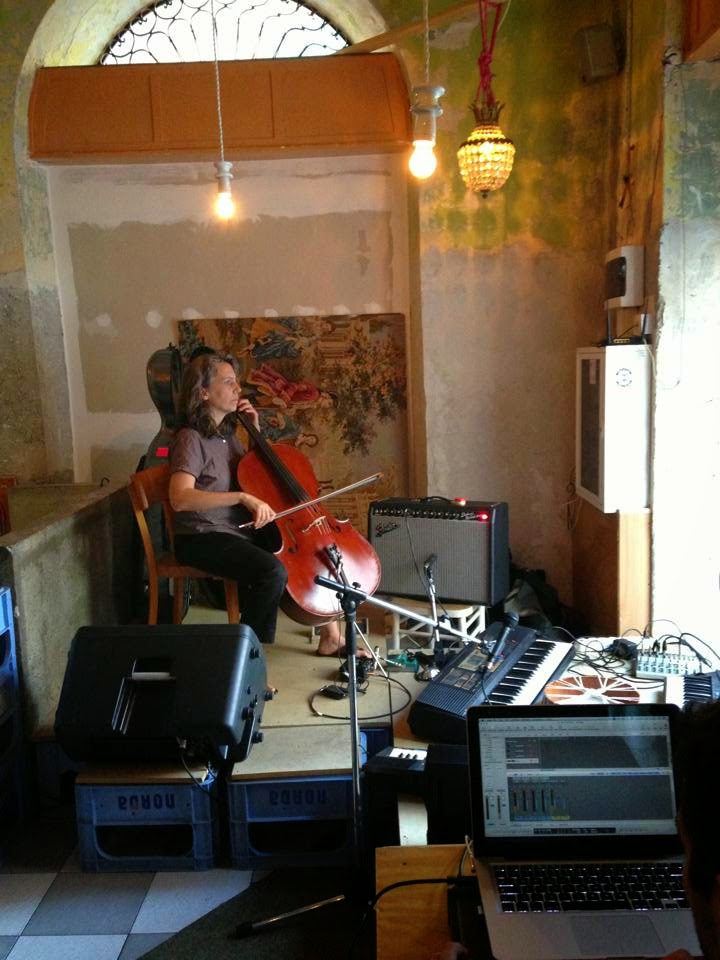
Are you involved in recording or releasing any music besides your own? If so, can you tell us briefly about that here?
Erin Jorgensen, a marimba player friend, just asked me to play on a record she’s making, so I’ll do that in a couple of days. She plays rock songs on solo marimba and sometimes sings; really lovely. Also, a couple of songs with friends in Europe. In Norway, a couple of weeks ago, I played on a lovely recording by Magnus Eliassen, a song by my friends’ band in Genoa, En Roco and something on a album that just came out by Teho Teardo who lives in Rome. Another friend’s band, Broken Water, is about to release an album that I played on a few months ago.
“I’ll go through periods of not listening to anything”
You seem to simply pick and choose where you take your cues and influences from, and as a result your sound is just a luscious combination of different things. Who are some of your major musical influences?
Another tough question; so, so many! At the moment I’m listening to cellists, which is pretty unusual for me. I’m thinking about the different ways that people have approached the instrument, about the continuum and tradition. When I started on guitar I learned folk and jazz; with cello it was conventional Western classical training. For years, it was confusing, in that those two kinds of training were so separate; it was as if l was a different person when I played cello than when I played guitar. For instance, I found it very easy to improvise on guitar, but nearly impossible on cello. My guitar playing had a creative edge over my cello playing, in that, starting guitar when I was only seven gave me a kind of unselfconsciousness about it. It’s amazing to think about the histories that we’re stepping into, consciously or unconsciously, when we take up these instruments; so much cultural and psychic precedence comes with the package. It took a while, but eventually I managed to put some of the expressive freedom that can come with the guitar into my cello playing. I was interested in all kinds of music and in high school spent a lot of time digging around in the public library and the music library at school. I was really lucky that my local library had a huge collection of old Folkways folk and ethnographic records, which were a huge influence on my understanding of, and excitement about, music. I was also listening to a lot of jazz: Eric Dolphy, Wes Montgomery, John Coltrane, Charles Mingus, Thelonious Monk, and a little later Albert Ayler and Pharoah Sanders. I’ve never been a very good jazz player, it’s just not my language, but I’ve studied and listened to it for most of my life, and it’s a big part of my understanding. In high school I discovered Jimi Hendrix and listened over and over to the couple of records that I had. Around then, or maybe in college, I got very interested in 20th century composers like Schonberg, Takemitsu, George Crumb, Messiaen, Webern, and Cage. Since then, it’s really been all over the place, often in waves. I’ll go through periods of not listening to anything, or stretches when all I’ll listen to is black metal, English folk, medieval music, Turkish, Romanian, minimalism, etcetera. In a way, there’s no rhyme or reason, but there’s usually something specific I’m trying to understand. How do they get that music to sound like there’s so much space when they’re playing very densely? How can they possibly make those melodies so expressive? How can their sense of rhythm sound simultaneously, so square and so circular? I’ll listen to recordings over and over, sometimes for months, to answer those questions.
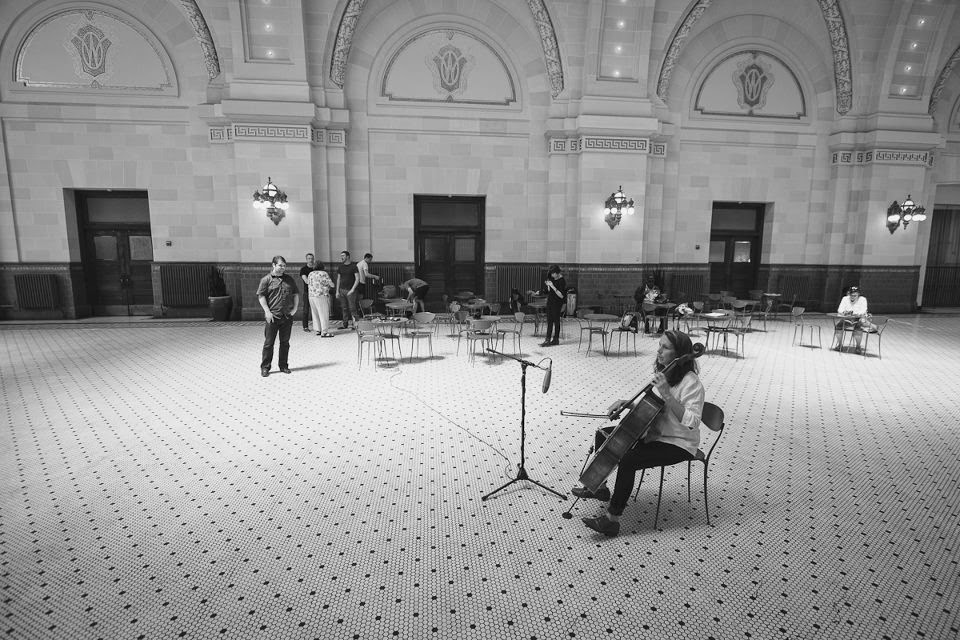
Whenever I talk to artists such as yourself, I inevitably end up having to describe how a band sounds to a bunch of people who have never heard them before. It’s a daunting task to say the least. I’m always freaked out that I’m putting way too many of my own thoughts and perceptions into things. How would you describe your sound to our readers who might not have heard your solo work before?
My voice as a cellist is kind of rough and delicate at the same time, makes use of a wide range of sounds and is influenced by rock, pop, classical liturgical and folk music from around the world. Often, the ideal is for it to be slightly beyond my control.
You’ve released two solo albums and a 7-inch single over the past few years. I know that other people are involved with the recording of the material on those albums, but I’m curious what the writing process is like for you? Do you usually come up with the idea for a song and then work out the other parts of the arrangement yourself, or is there someone else involved at that point?
No, it’s pretty much just me. The engineers that I work with are usually good friends that I trust, so I’ll ask for advice, sequencing suggestions and such, but that’s about it. I’m running a pretty barebones operation here, which is how I like it.
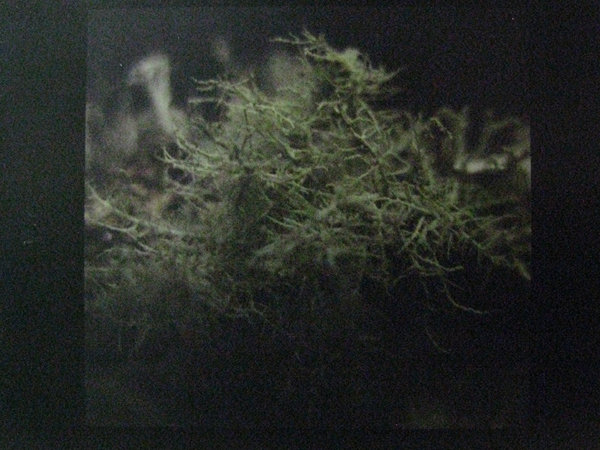
What’s recording like for you? I think that most musicians can appreciate the end result of all the time and effort that goes into making an album when you’re finally holding that finished product in their hands. But getting to that point, getting stuff recorded and especially sounding the way you want it to can be extremely difficult to say the least. What’s it like recording for you?
I’ve always worked within tight budgets, and am more geared toward live music than recording. So, my usual approach has been to imagine, compose, arrange and rehearse before heading into the studio. More and more, I’ve been inclined to add an element of improvisation. I’m not a big fan of overdubbing or heavy editing, at least for my own work. I like for the air and the moment to be very present in the music that I record. The process for putting the two solo albums was very different. Film Scores was compiled from many years’ worth of projects. The Mississippi Records LP, Creekside, was recorded in a couple of sessions at Mell Dettmer’s studio. I had just bought a new cello, my first really good instrument. It was brand new, made by my friend Jason Starkie here in Seattle. It takes a long time for that kind of instrument to settle in, there’s so much going on with the resonance, the individual pieces of wood, which, of course, used to be living things, the relationships between the parts, many of which are not attached to one another and held together only by tension. So, one thing that’s going on with that recording is me figuring out this wonderful, but somewhat unmanageable, new object. There’s an undercurrent of instability, discovery and struggle that I’m really happy with. The 7-inch was from a recording session that I put together for a commission for a Sub Pop compilation. I recorded it with three friends, Karl Blau, Dave Abramson and Kanako Pooknyw. I gave them some parameters about the sound and feel I was thinking of, and some ideas about the overall arc of the song, and we improvised together.
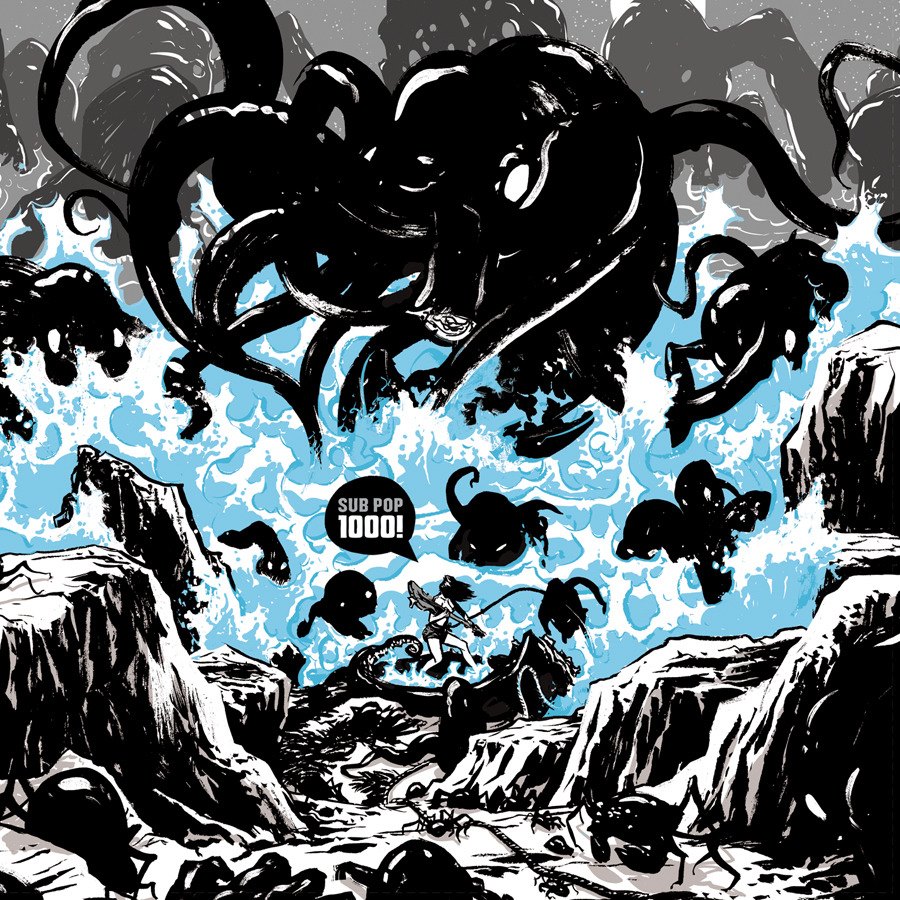
Do you like to take a kind of DIY approach to music where you handle most of the technical aspects of things on your own so that you have to work with as few people as possible and preserve as much of the original sound in your head as possible on the final tracks? Or, do you like to head into a studio and let someone else handle that side of things, so you can just concentrate on the music and getting the best performance possible?
I don’t like to split my focus and am very happy to let someone else turn the knobs whenever possible so that I can think only about the music.
Is there a lot of time and effort that goes into meticulously working out every part of a song’s composition and arrangement before you record, or do you get a good skeletal idea of what something’s going to sound like, while allowing for some change and evolution during the recording process where necessary?
It depends on the project and the musicians. I do my best to setup a circumstance in which the players are comfortable and can shine. For some people, that means having everything meticulously written out, for others it means just saying, “Go”. For some circumstances or types of music it’s good to have a looser, more improvisational sound and for others more formal.
Do psychoactive or hallucinogenic drugs play a large or important role in the songwriting, recording or performance processes for you? I don’t mean this in a negative, or derogatory manner either. People have been tapping into the altered mind states that drugs create for the purpose of creating art for thousands of years and I’m simply curious about their usage and application when it comes to the art that I personally enjoy and consume…
I have a longstanding love of many kinds of music that are associated, directly or indirectly, with a deep desire for awareness and/or altered states of consciousness by way of chemical or other means. That drive is one of the most charming, wonderful and simultaneously aggravating things about humans.
In 2013 you released your first solo material that I’m aware of, the self-titled Lori Goldston 7-inch for Talking Helps Records in a limited edition run of 300 copies. Can you share some of your memories of recording that first material? Was that a fun experience for you, or more of a nerve wracking proposition at the time? Who recorded that material and where would that have been? When was it recorded? What kind of equipment was used?
That session was, as I mentioned earlier, put together for a song on a Sub Pop compilation. It was a fun and odd assignment that had me wondering where to find the intersection between what Sub Pop does and what I do. I’d already been daydreaming for months about playing with Karl and Kanako together, so, when I was hired by Sub Pop I knew immediately who I would ask. Drummers are often my favorite collaborators and why not use two? So, it was an easy decision to add Dave, who’s a wonderful musician and always adds texture, feel and spirit.
Earlier this year (2014) you followed up the self-titled 7-inch with your debut 12” for Sub Rosa entitled, Film Scores. It drew upon scores and suites from The Passion Of Joan Of Arc, Bass Ackwards and Passing Fancy as well as several others. Can you talk a little bit about how that album came to be and what you were trying to accomplish with the album? Why draw from previously written material as opposed to writing original stuff? Do the pieces on the album hold any kind of personal significance to you, or how were they chosen? Did you try and really rework those pieces of music, or how did you approach the material of Film Scores as far as changing or being extremely true to the source material?
Guy Marc Hinant from Sub Rosa wrote to ask if I had material that I might want to release on a solo record. I sent some things that he liked, but he asked for more. He’d mentioned that he was a filmmaker and it occurred to me that he might particularly be interested in the part of my work that’s connected with film. So, I compiled an album from my film scores and yes, that was it. I’ve done a lot of work with film in different capacities and it’s been a pleasure to release what feels like a pretty representative overview. I’ve done lots of recordings over the years and am in general not so focused on putting out records, so it was nice to get a bit of what often feels like a backlog out the door. The pieces are recordings I’d made at various times for film soundtracks. Everything is as I’d recorded it for the films; nothing was reworked or anything, just some editing. The new films were made by friends Britta Johnson, Vanessa Renwick and Linas Philips. Everything was tracked live, with all the musicians together in the same room playing while watching the films. The scores for the Ozu film and Charismatic Megafauna were recorded during live performances. I’ve performed live with silent films a lot over the years, solo, with small ensembles and with the Black Cat Orchestra. A couple of weeks ago I ended my European tour in Oslo with a solo film score show, performing with Carl Dreyer’s The Passion of Joan of Arc. That’s the film that I’ve accompanied most, but I’ve done dozens of scores. The one time that I received unemployment, post Nirvana, I’m not sure what possessed me to do this, but I offered to be the silent film accompanist for my friend Dennis Nyback’s crazy little theater The Pike Street Cinema. He really kept me busy, sometimes scoring three films a week. Often, the films weren’t available on video, this is pre-internet days, and I’d only have a chance to see the film once, or occasionally not at all, before performing with it.
Was the recording of the material for Film Scores very different than the earlier session(s) for the 7-inch? Who recorded the Film Scores material and when would that have been? Where was that at and what kind of equipment was used?
The Film Scores material was recorded over the course of many years, all over the place and by several engineers: Tucker Martine, Julian Martlew, Ed Haber, Moe Provencher, Johnny Mendoza and Kyle Hanson. Everything was recorded live, often primarily with room mics.
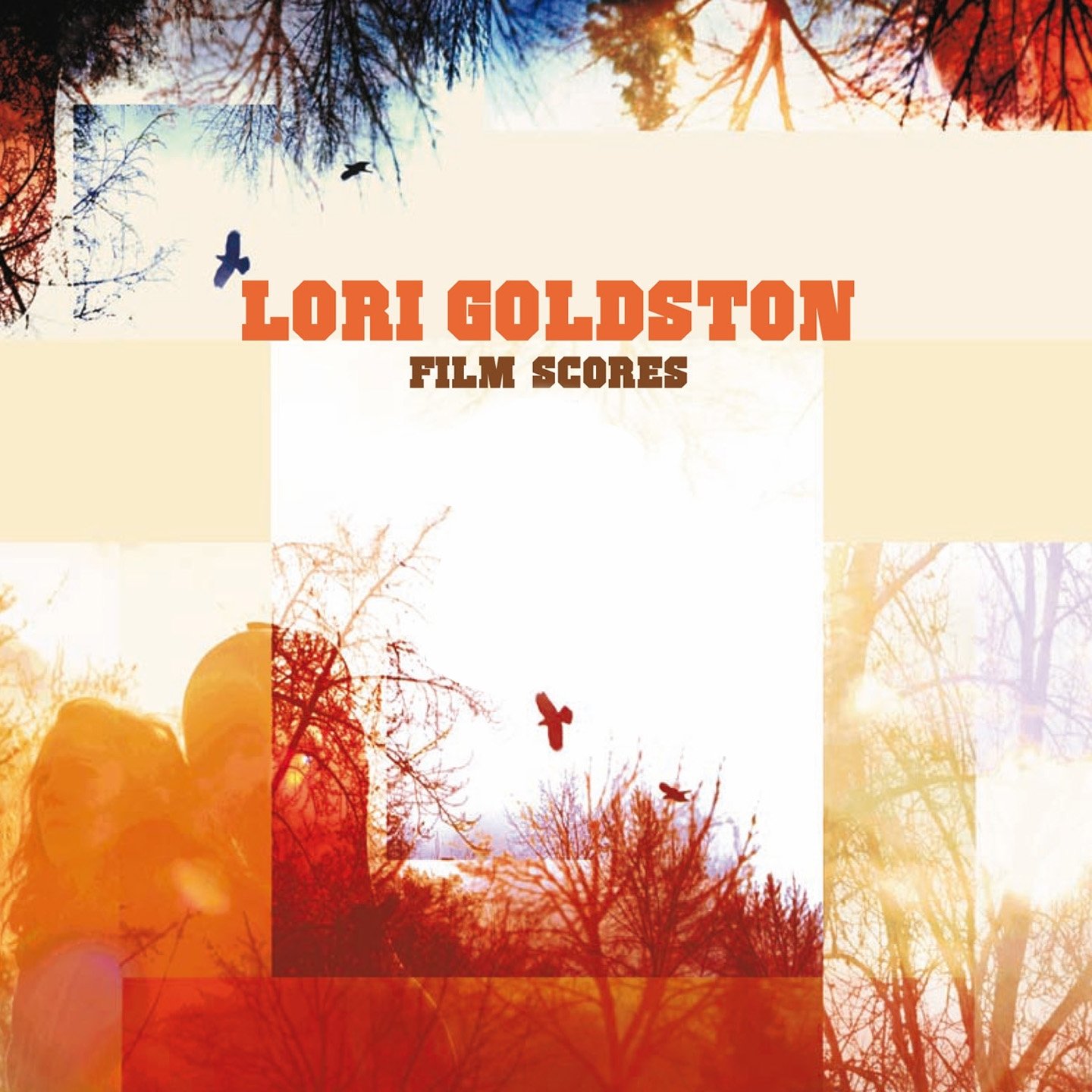
In addition to the Film Scores album you also released the Creekside: Cello Solo album for Mississippi Records in 2014 as well. Did you try anything radically new or different when it came to the songwriting or recording of the material for Creekside: Cello Solo? What can our readers expect from the new album? When was the material for Creekside: Cello Solo recorded? Who recorded that material and when would that have been? What kind of equipment was used this time around?
As I mentioned earlier, I recorded Creekside at Mell Dettmer’s studio, Aleph. The album’s named after the creek that runs through her backyard, Longfellow Creek. You have to love the longsuffering perseverance of an urban creek. It was nice to be asked to make something for Mississippi Records because Eric’s put out so many excellent reissues, so it’s very comfortable and flattering company to keep. I thought of the long line of musicians, and how recording shows an occasional snapshot of that flow of music, a moment in the life of a musician or group of musicians. So the title, Creekside, also touches on that feeling, and in that way it was a chance to think about the meaning of the ethnographic field recordings that have been important to me. Mell’s an amazing engineer and a pleasure to work with. I think we recorded it in two sessions in 2013. Everything was recorded with a close mic and a room mic, sometimes a little reverb added and that’s it. I like to keep it simple and let the instruments do the hard work.
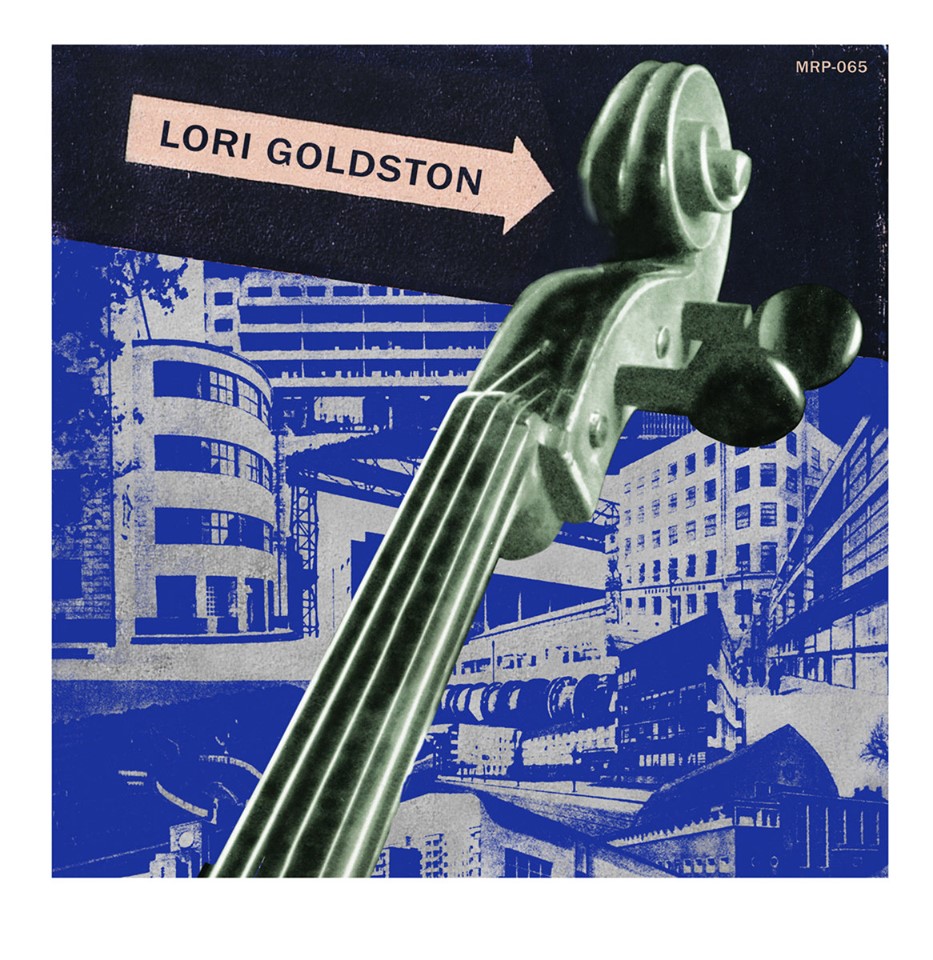
Do you have any solo material that we haven’t talked about yet, maybe a demo or a single that I might not know about?
There’s the album that we did with our band, Spectratone International, and Mirah, Share This Place. I got interested in insects when my son was a baby. I felt pretty cooped up and I spent a lot of time sitting still in the garden, looking around. I somehow convinced Mirah and Kyle, my husband, to go in on writing and performing a bunch of songs about bugs, and commissioned my filmmaker friend Britta Johnson to make stop motion animated films to go with them. We recorded them with Steve Fisk and Phil Elverum, and toured the U.S. performing with the films; K Records released it as a CD and DVD. Spectratone was, indirectly, an offshoot of the Black Cat Orchestra, but had a less theatrical air and leaned more toward rock, folk and chamber music. The instrumentation was cello, Kyle on accordion, Kane Mathis on oud, Jane Hall on percussion, and for a while Nina Darko Vukmanic on bass. Aside from that, there are some very limited run tour-only CD-Rs, but that’s about it. I’ve got lots in the can and hope to get at least some of it out into the world one of these days.
Having released two albums this year already, I have to ask, are there any other releases in the works or on the horizon at this point?
I’m itching to do a solo record that’s mostly amplified and one of duos with one or more drummers. I have some of each recorded, but I think I need to do more tracking.
Where’s the best place for our US readers to pick up copies of your stuff at?
Probably through Bandcamp.
With the completely insane international shipping rates these days I always try and provide our readers with as many possible options as I can for picking up imports. Where’s the best place for our poor international and overseas readers to score your music?
Again, I would suggest my Bandcamp or Big Cartel stores. I think it’s nearly out of print at the moment, so my stash would be the most reliable source.
And where’s the best place for our interested readers to keep up with the latest news, like upcoming shows, album releases and tours at?
Via my website.
Are there any major plans or goals that you’re looking to accomplish in the last of 2014 or in 2015?
At the moment, I’m looking forward to composing some graphic scores, practicing, and hopefully some writing.
Do you spend a lot of time out on the road touring? Do you enjoy being out on the road? What’s life like on tour for you?
For the last few years I’ve gone to Europe once or twice a year, usually for five to six weeks. It’s amazing to travel, but difficult to be away from my family for so long. Since it’s hard for them when I’m away, I feel obliged to make good use of my time, so I work pretty constantly. It’s grueling but I don’t mind, and the shows are, for the most part, a huge pleasure.
What, if anything, do you have planned as far as touring goes at this point?
I’ll go back to Europe in the summer and maybe for a short tour in the spring. I’ve been feeling very overdue to play in California and will probably get there in the spring; maybe an east coast trip in there somewhere.
With all of the various methods of release that are available to musicians today I’m always curious why they choose and prefer the various mediums that they do. Do you have a preferred medium for releasing your own material? What about when you’re listening to or purchasing music? If you do have a preference, what is it and can you tell us a little bit about why?
I’m happy to listen on any format. Vinyl’s wonderful except for when you need to drag it around on tour.
Do you have a music collection at all? If so, can you tell us a little bit about it?
I have a pretty big LP collection, and I still have CDs and cassettes. It’s a very quirky assortment, but for me, it’s packed with treasures. I’m only interested in listening and not into collecting, so when I go record stores I’m alarmed to be reminded of what old records are worth now. For a long time, records were the cheapest way to buy music and now they are the most expensive.
I grew up around a pretty massive collection of music and while I was encouraged to listen to anything that interested me, it was taking me around to the local shops and picking me up random stuff at the local shops that really had the biggest impact on me. I developed this whole ritual for listening to music that I’ve never really outgrown. I would rush home, snag a set of headphones, kick back with the album, read the liner notes, stare at the cover and just let the music transport me off on this whole other experience. Having something physical and concrete that is connected with the music has always made for a much more complete listening experience for me. Do you have any such connection with physically released music?
I love vinyl. I’ve also got a soft spot for cassettes and have been happy to see them make a comeback. I miss buying them in Asian and African grocery stores.
Like it or not, digital music is here in a big way these days! That’s just the tip fo the iceberg though, when you combine digital music with the internet that’s when things get really interesting. Together, they’ve exposed people to the literal world of music that they’re surrounded by and it’s allowed for an unparalleled level of communication between bands and their fans for the first time in history, almost eliminating most geographic limitations that would have crippled bands in the past. On the other hand though, while people are hearing all this new music, they’re not necessarily interested in paying for it at this point. Getting noticed in the insane digital scene is harder than ever and while I don’t think that anyone on the independent level was getting “rich” off of album sales, illegal downloading has definitely impacted the bottom line for a lot of people as far as album sales go. As an artist during the reign of the digital era, what’s your opinion on digital music and distribution?
As a listener, I’m happy to use any and all formats depending on the music and the situation. I download mp3s, play cassettes, CDs, vinyl, everything. As a musician, I’ve always concerned myself much more with playing live than with selling recordings, so personally, I haven’t been hit by the new digital reality as hard as my more practical colleagues. The internet is a blessing and curse. On the one hand, everything is accessible for free, and people have gotten out of the habit of paying for recordings. For sure, it’s a bit sad that, apparently, listeners don’t feel like people should be paid to make the music they like to listen to. On the other hand, the amount of dialog between musicians past and present keeps growing exponentially, which has got to be a good thing. I still find it completely astounding that I can spend a whole evening watching pop music from 70s Azerbaijani TV or whatever on YouTube; really unbelievable.
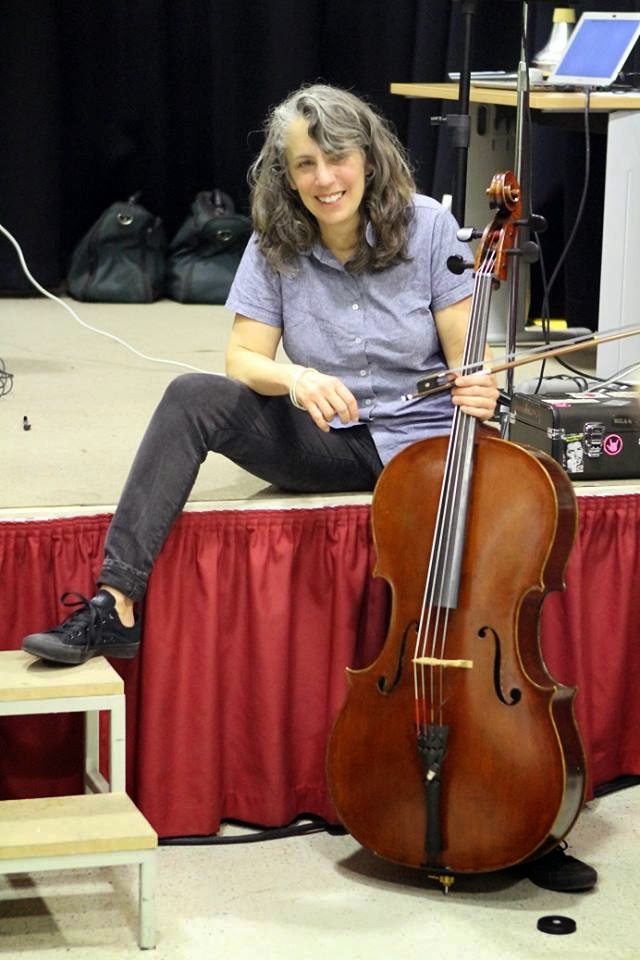
I try to keep up with as much good music as I possibly can but with all the amazing stuff out there right now it’s hard to even know where to start sometimes! Is there anyone from your local scene or area that I should be listening to I might not have heard of before?
A few Pacific Northwest favorites are Heatwarmer, Perfume Genius, Corey Brewer, Lozen, Jessika Kenney and Eyvind Kang, Pran, Thousands, Hive Dwellers, Diminished Men, Sue Ann Harkey, Wolves in the Throne Room, Marisa Anderson, Michael Hurley and Dead Moon.
What about nationally and internationally?
On these European tours I’ve had the pleasure of hearing and occasionally playing with, some wonderful people with excellent projects, including Dagora, Frankenstein’s Ballet, Mik Quantius, Bob Corn, Be My Delay, R in Parenthesis, Julian Gasc, Bellini, and Le Ton Mite.
Thank you so much fro taking time out of your insane schedule to humor my insane questions! I’ve been listening to your music since I can remember having actual taste in music and it has led me to a lifelong appreciation for and obsession with, cellos. I don’t like to gush but I did want to take this opportunity to thank you again for sharing your time with me and the readers, it was a real honor talking to you. I swear though, I’m done; no more questions from me! Before we call it quits and sign off, I’d like to open the floor up to you for a second though as you were so generous with your time. Is there anything that I could have possibly missed at this point or that you might just like to take this opportunity to talk to me or the readers about at this point?
It’s a pretty epic interview! Thanks again for the kind words and your interest in what I’ve been up to. My parting advice for musicians is to keep your overhead low and pay close attention to your muse.
Roman Rathert
DISCOGRAPHY
(2013) Lori Goldston – Lori Goldston – 7” – Talking Helps Records (Limited to 300 copies)
(2014) Lori Goldston – Film Scores – CD, 12” – Sub Rosa Records (Black and Orange Vinyl 12” limited to ? copies)
(2014) Lori Goldston – Creekside: Solo Cello – Mississippi Records
(2014) Lori Goldston – The Lichens In The Trees – digital, 7” – Talking Helps Records (Limited to 300 copies)
Lori Goldston Official Website / Facebook / Instagram / Twitter / Bandcamp

